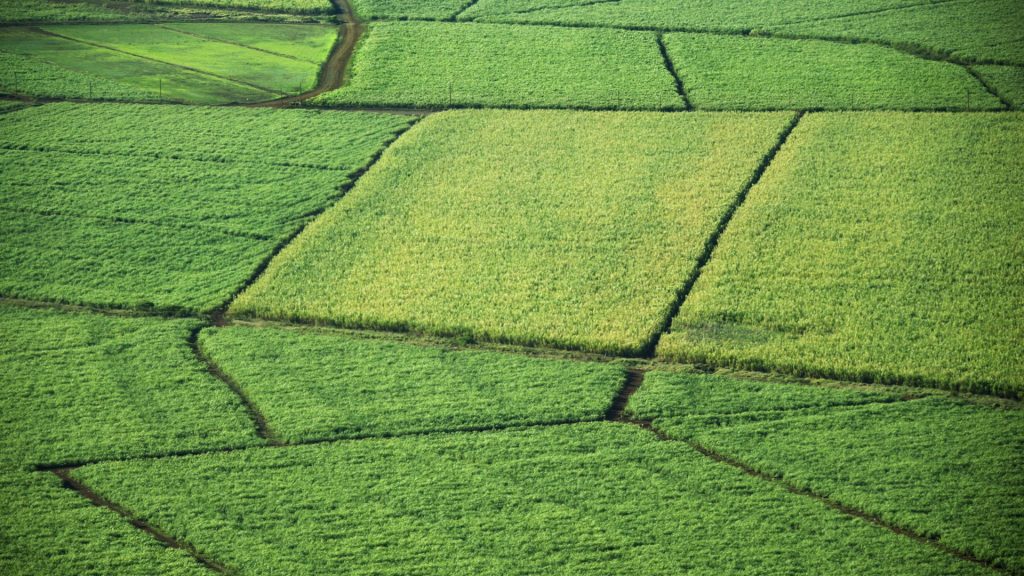
NEWS
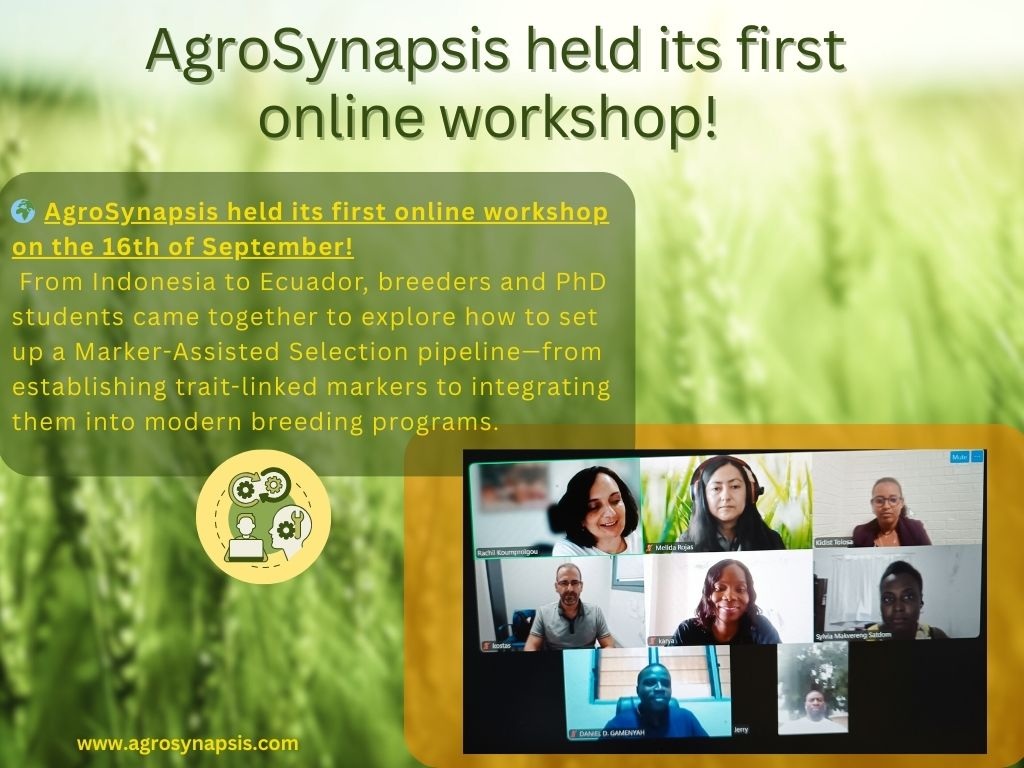
September 17, 2025
AgroSynapsis is proud to have organized our first online workshop
Learn more
Workshop title:
“How to Set Up a Marker-Assisted Selection Pipeline – From Phenotype to Genotype: The Modern Revolution in Crop Improvement”
We gathered a small but highly interactive group of participants—from Indonesia to Ecuador—including PhD students and breeders working on from flowers and forest species to rice and potato.
🌱 Together, we explored:
– How to establish markers linked to traits
– How to incorporate these markers into a molecular breeding pipeline
– An integral approach to molecular breeding, highlighting the practical aspects companies should consider when complementing classical breeding with molecular tools
💡 The participants’ enthusiasm and openness showed us a clear wish to build a community for exchanging insights and creating synergies across crops and regions.
👉 Check our testimonials
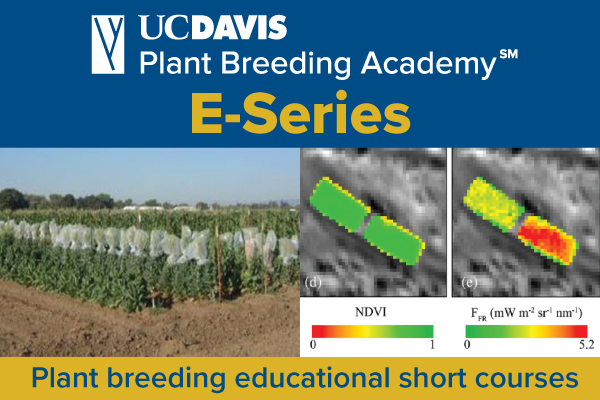
July 23, 2025
AgroSynapsis Joins a New Introductory Course on Molecular Markers as Leading Instructor
Learn more
We are excited to share that Dr Rachil Koumproglou, Founder at AgroSynapsis, has been appointed as the Lead Instructor for the upcoming Molecular Markers 101 course offered by the UC Davis Plant Breeding Academy — an introductory online course designed for everyone in the seed industry!
With over 25 years of experience in molecular marker technologies applied in plant breeding and as the Founder and Chief Scientist of AgroSynapsis, it’s an honor to help launch this accessible and much-needed training.
Course Information
📅 Course dates: March 10 & 12, 2026
💻 Format: Online (two half-day sessions)
Whether you work in breeding, seed production, QA/QC, field operations, sales, administration, or even finance, this course will give you a solid understanding of how molecular tools are transforming plant breeding and seed systems.
🔬 No lab experience needed — just curiosity and a desire to learn!
You’ll gain insights into:
✅ What molecular markers are and why they matter
✅ DNA sampling, genotyping & data interpretation
✅ Marker-assisted selection in breeding
✅ Applications in seed production & QA
✅ How different teams (lab, field, admin) can better collaborate
💬 The sessions include interactive discussion and live Q&A, so bring your questions and real-world challenges.
I’ll be co-teaching alongside Jovan Djordjevic, the Director of the UC Davis Plant Breeding Academy.
👉 Learn more and register
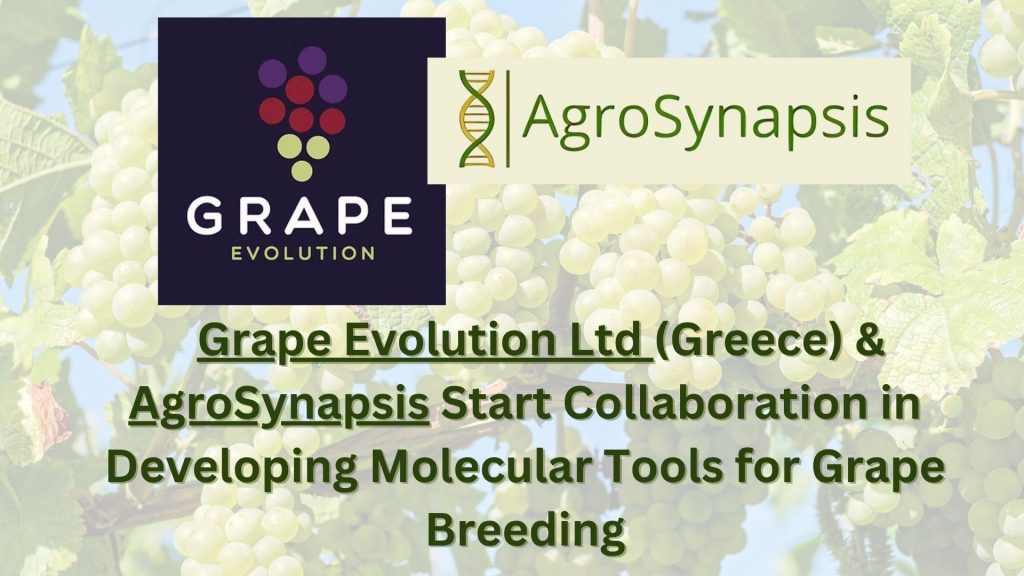
July 15, 2025
Grape Evolution Ltd (Greece) & AgroSynapsis Start Collaboration in Developing Molecular Tools for Grape Breeding
Learn more
We’re proud to partner with Dimi Spanos and GrapesEvolution Ltd to develop and apply molecular markers for key grape berry traits.
AgroSynapsis will deliver and validate promising markers using Grapes Evolution’s grape populations, and support the routine use of these markers in breeding programs — helping accelerate precise and efficient grape improvement.
🍇 This is especially valuable in grapevine breeding, where each plant takes 2–3 years to produce fruit for evaluation. By applying molecular markers early on, we can identify desired traits in seedlings, saving time, space, and resources in the field.
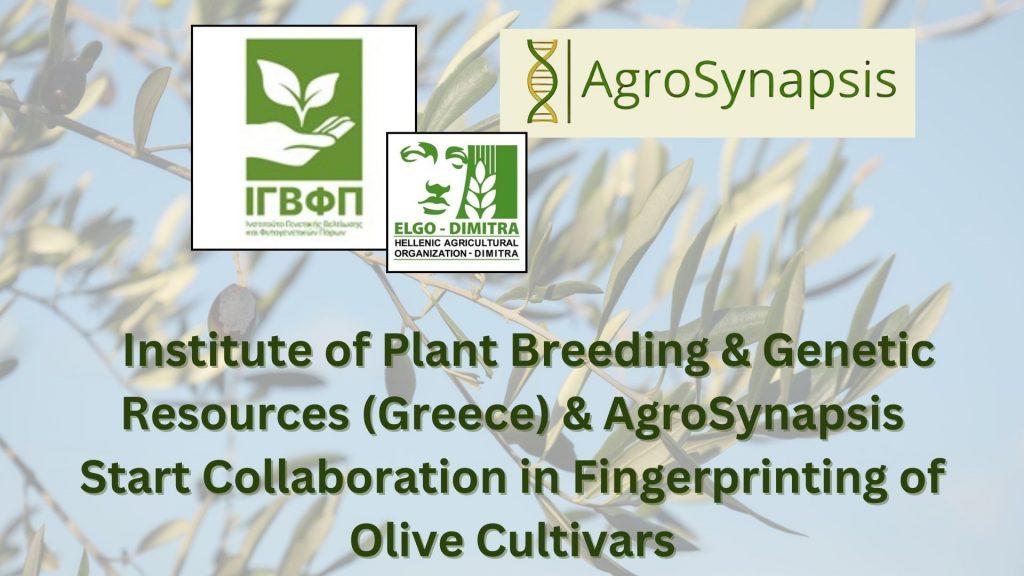
May 20, 2025
Institute of Plant Breeding & Genetic Resources (Greece) & AgroSynapsis Start Collaboration in Fingerprinting of Olive Cultivars
Learn more
We are excited to announce a new collaboration between AgroSynapsis and the researchers Christos Bazakos and Ioannis Ganopoulos from the Institute of Plant Breeding and Genetic Resources – ΕΛΓΟ ΔΗΜΗΤΡΑ ELGO DΙΜITRA DIMITRA in Greece.
Together, we are working to establish and apply a SNP molecular identification system for olive cultivars—a critical tool for authenticity, traceability, and varietal protection in the olive industry.
As the latest generation of genetic markers, SNPs (Single Nucleotide Polymorphisms) offer compelling advantages over traditional SSRs: they are abundant, highly stable, bi-allelic, and compatible with high-throughput genotyping platforms. These traits make SNPs ideal for precise, reproducible, and scalable cultivar identification.
In this project:
✅ AgroSynapsis is designing the workflow and quality standards to select the minimal set of high-informative SNP markers capable of uniquely identifying all commercial olive cultivars.
✅The Greek research team will perform the technical validation of the SNP panel to ensure accuracy and reliability across diverse genetic backgrounds.
📌The final result will be a fingerprinting service for olive cultivars, enabling precise identification of any variety on the market.
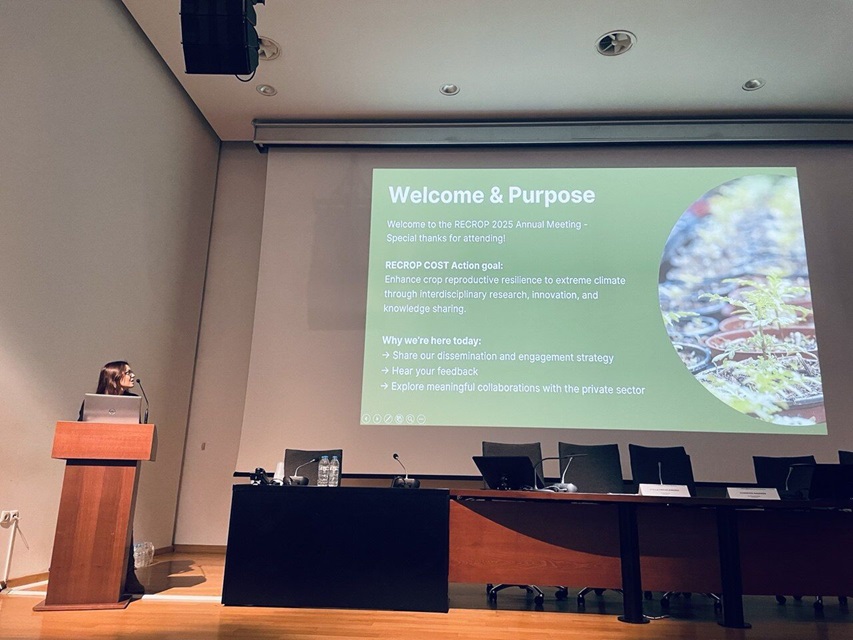
AgroSynapsis was there, in RECROP’s “Stakeholders Meet Researchers” session!
May 12, 2025
Learn more
We at AgroSynapsis were honored to be invited to this engaging session — a big thank you to Christos Bazakos and Sotirios (Akis) Fragkostefanakis for the kind invitation! It was inspiring to hear about the ongoing efforts to foster dialogue between researchers and the private sector.
📌 Valuable perspectives were shared, and a roadmap is now under development to strengthen synergies across sectors. Thanks to Stella Provelengiou, this project is becoming reality.
If you’re interested in contributing to the development of crop varieties with resilient reproductive systems, we encourage you to join the Recrop Cost network.
🔗https://lnkd.in/d4-9xg9e
Members benefit from a vibrant community and access to tools like an AI-driven platform for identifying strategic collaborations. 🌾🤝
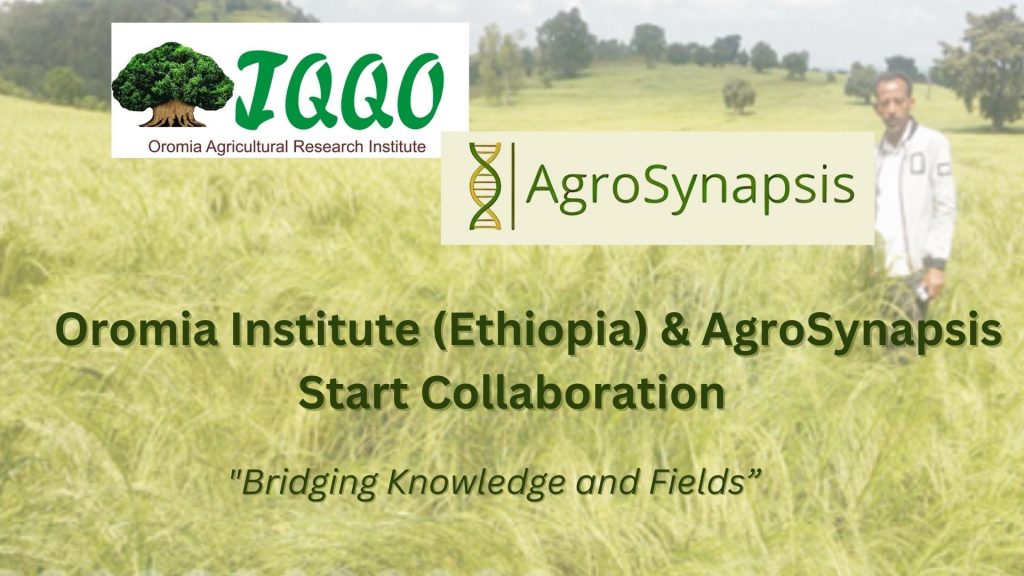
May 10, 2025
Collaboration between AgroSynapsis and Oromia Agricultural Research Institure, Ethiopia
Learn more
AgroSynapsis has established an exciting collaboration between AgroSynapsis and Behailu Mulugeta (Ph.D.), a dedicated wheat breeder (Biotechnologist/Geneticist) at the Oromia Agricultural Research Institute in Ethiopia.
Together, we are developing molecular tools to monitor resistance to Fusarium Head Blight (FHB) in Ethiopian wheat germplasm — a vital step toward more resilient and productive wheat varieties.
These tools will empower local breeding programs with precision and efficiency, helping breeders accelerate the selection of FHB-resistant lines adapted to Ethiopia’s unique agro-ecological conditions.
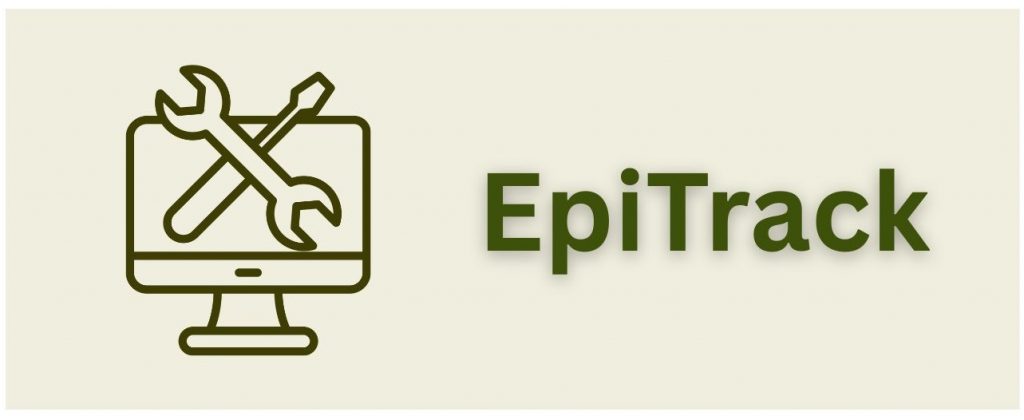
May 8, 2025
New Tool Launch: EpiTrack Uncovers Two-Gene Interaction Models from F2 Populations
Learn more
In AgroSynapsis, we are pleased to release EpiTrack, a free online tool that helps breeders and geneticists identify the epistatic interaction between two genes based on phenotypic segregation ratios from F₂ populations.
🔍 𝗪𝗵𝗮𝘁 𝗶𝘀 𝗘𝗽𝗶𝘀𝘁𝗮𝘀𝗶𝘀?
Epistasis refers to interactions between two genes, where one gene can mask or modify the effect of another. These interactions often shape complex trait expression and alter expected Mendelian ratios — a critical consideration in breeding.
🌾 𝗪𝗵𝘆 𝗶𝘀 𝘁𝗵𝗶𝘀 𝗶𝗺𝗽𝗼𝗿𝘁𝗮𝗻𝘁 𝗳𝗼𝗿 𝗯𝗿𝗲𝗲𝗱𝗲𝗿𝘀?
Understanding the underlying epistatic model allows breeders to:
✅ Preserve essential alleles (especially in recessive epistasis) during the selection program
✅ Configure the correct genetic makeup of the parental lines to ensure that the commercial variety expresses the desirable phenotype
✅ Predict trait segregation ratios and design the appropriate population sizes to ensure observing and maintaining all desirable phenotypes
🛠️ 𝗘𝗽𝗶𝗧𝗿𝗮𝗰𝗸 uses simple chi-square tests to compare your observed F₂ segregation ratios to classical epistatic models — all in a clear and intuitive interface.
